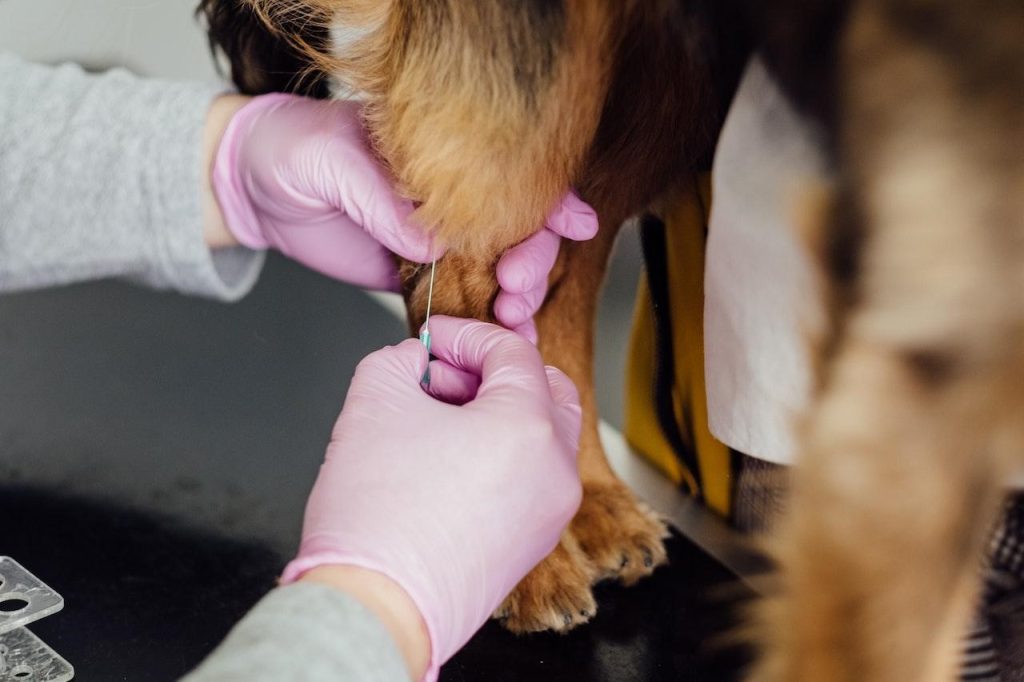Joint inflammation, or osteoarthritis, is a common health issue in dogs. This condition can cause chronic pain and reduced mobility due to joint stiffness and swelling. Fortunately, there are ways for pet owners to help their furry friends manage the condition and alleviate symptoms. After all, nobody likes to see their canine friends suffering!
Why Does Joint Inflammation Occur in Dogs?
Joint inflammation is caused by a breakdown of cartilage in the joints. Cartilage is responsible for providing cushioning during movement and protecting the bones, so when it becomes damaged or worn down, joint pain and stiffness can result. Common causes of joint inflammation in dogs include age-related wear and tear, trauma to the joint, obesity, certain medical conditions, and some types of medications.
5 Ways to Deal with the Joint Inflammation in Dogs
1. Exercise – It sounds counter-intuitive, but gentle exercise can be beneficial for dogs with joint inflammation. Regular physical activity helps to strengthen muscles that support the joints and can reduce stiffness and pain. Speak with your vet about what type of exercise is right for your dog. The worst thing you can do is keep your dog sedentary as this can worsen joint inflammation.
2. Weight Management – Excess weight puts additional strain on the joints, leading to more joint inflammation. To reduce the strain on your dog’s joints, it is important to maintain a healthy weight. Once again, don’t be afraid to speak with your veterinarian about what type of diet and exercise plan is best for your dog.
3. Massage – Gently massaging your pet’s joints can help reduce joint inflammation and improve circulation, allowing the body to deliver more nutrients to the affected area. You don’t have to be a professional masseuse to give your dog a massage. Just use your hands (or get a pet massager) to apply gentle pressure while lightly moving your hands in small circles.
4. Supplements – Like humans, dogs can benefit from taking joint supplements. However, be sure to consult your veterinarian before giving these to your dog because some may interact with other medications or supplements your pet is taking. Common supplements that may help reduce inflammation include glucosamine for dogs, chondroitin sulphate, omega-3 fatty acids, and hyaluronic acid.
5. Strengthening – Lastly, strengthening exercises can reduce the pain caused by joint inflammation. Start with a simple walking routine and gradually add more challenging activities such as swimming or agility training. When exercising, be sure to keep your pet warm and take frequent breaks to prevent over-exertion. Strengthening exercises can increase joint flexibility and strengthen surrounding muscles, which can reduce pain in the long-run.
Signs of Inflammation
Joint inflammation is a common problem for dogs, but it doesn’t have to be a source of pain. Taking steps to reduce inflammation, such as changing the dog’s diet, providing pain relief medications, and engaging in joint-friendly exercises, can help keep your pet happy and healthy. How do you know if your dog is exhibiting signs of joint inflammation? Common symptoms include:
• Difficulty standing, climbing stairs, or getting up from a lying position
• Limping or favouring one leg over the other
• Reluctance to move around or jump up onto furniture
• Swelling, tenderness, redness, and heat in the area of the joint
• Increased stiffness after lying down or sleeping
• Pain when touched or moved
• Loss of appetite or weight loss
It’s important to talk to your veterinarian if you notice any of these signs. Your vet will conduct a physical examination and may suggest x-rays or other tests to rule out any other conditions.
